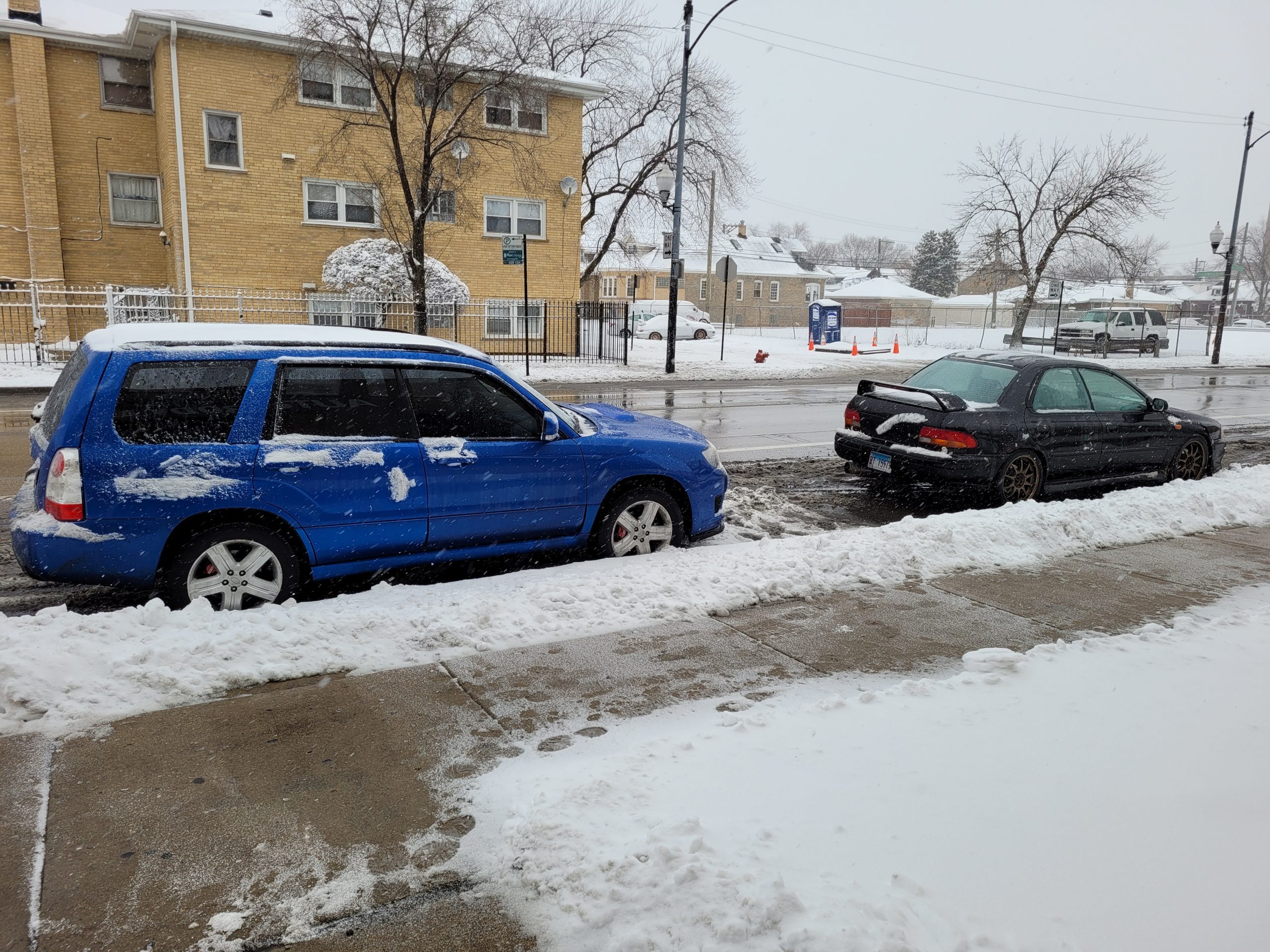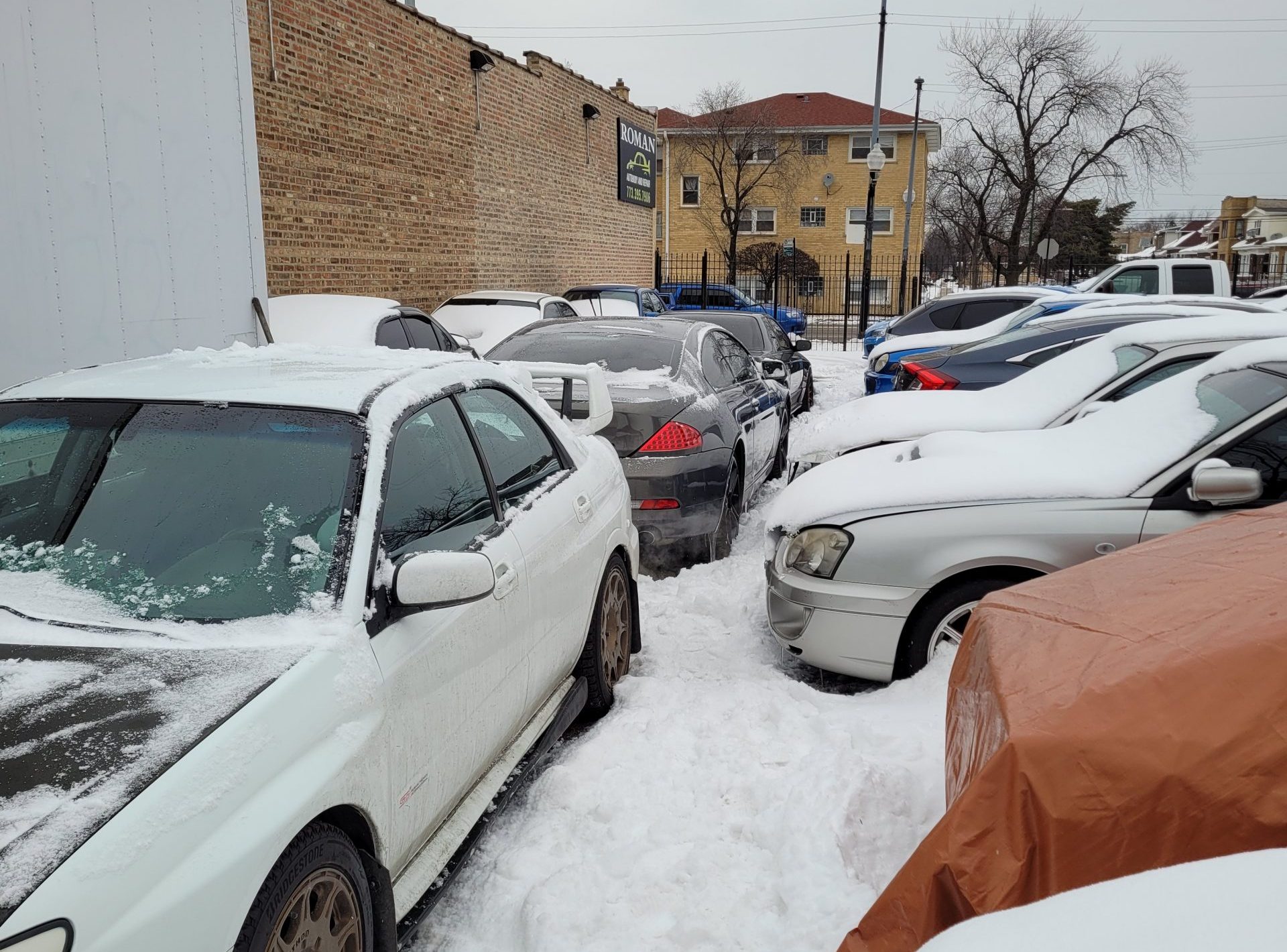Getting through the Winter
Winter in the midwest can be all over the place sometimes. One year we get snow as early as October and others we don't have snowfall until January! Either way, once winter starts rolling in, it is important to keep your winter maintenance game on point! The last thing we need is being stuck out in below freezing with car troubles or worse, getting into an accident.
Thus we put together some winter maintenance advice of things to keep an eye on and watch for to help you get through the season!
Tires
While having a good set of dedicated Winter tires is the safest choice, not everyone is able to afford multiple sets of tires/wheels. All-season and All-weather tires are great alternatives for those looking to only purchase one set of tires. They may not out-perform Winter/Summer Performance tires, but they perform well year round with safe handling characteristics. Keep an eye out for the tipple peak ratings if you live in colder climates with more snow fall!
Aside from using the appropriate tires, having them properly inflated is just as important. this is important to ensure that you are getting optimal performance and even tread wear. Why is it important during winter to check the tire pressure? During winter the air density fluctuates and can cause tires to deflate. This is why it is a good rule of thumb to check weekly to make sure your tires are at your cars recommended PSI (usually found in the door jam, **NOTE: Not the PSI indicated on the tires).
Fluids (oil, antifreeze, windshield)
At the beginning of the season we always recommend checking your engines fluid levels and the type of fluid you're using. It's something you should be doing at least every 6 months if you aren't taking the car in for oil changes (in which case we would be checking them for you!). As it gets colder, oil starts to get more dense and gains viscosity. Opting for a lower viscosity oil (going from 10w40 to 5w30 for example) will help the car warm up faster and avoid your filter from stressing

out. Using full synthetic oils will also help as they warm up faster and also require colder temperatures to gain viscosity than conventional oils. (imagine molasses trying to get through a filter as opposed to water).
It's also important to make sure that you're topped off with Antifreeze in your radiator as it wont freeze and choke the coolant system. Lastly it make sure that you have a winter specific (some brands make blends) windshield wiper fluid to help with de-icing and clearing off your windshield.
Wipers
Speaking of windshield wiper fluid and keeping your windshield clear for visibility, it is recommended to replace your wipers every 6 months. When living in the Midwest or in areas with more extremely diverse climate, the rubber and plastics on windshield wipers are prone to cracking, fading, and breaking faster. You can also opt for winter specific wiper blades. But if you're changing them every 6 months, you should be covered for all the seasons mother nature throws at you.
out. Using full synthetic oils will also help as they warm up faster and also require colder temperatures to gain viscosity than conventional oils. (imagine molasses trying to get through a filter as opposed to water).
It's also important to make sure that you're topped off with Antifreeze in your radiator as it wont freeze and choke the coolant system. Lastly it make sure that you have a winter specific (some brands make blends) windshield wiper fluid to help with de-icing and clearing off your windshield.
Wipers
Speaking of windshield wiper fluid and keeping your windshield clear for visibility, it is recommended to replace your wipers every 6 months. When living in the Midwest or in areas with more extremely diverse climate, the rubber and plastics on windshield wipers are prone to cracking, fading, and breaking faster. You can also opt for winter specific wiper blades. But if you're changing them every 6 months, you should be covered for all the seasons mother nature throws at you.

Battery
The keywords when it comes to batteries: Cold Cranking Amps (CCA). When buying a car battery replacement in colder regions it is good to pay attention to CCA. The higher the CCA the better they will perform during winter (as the name implies). In other cases some people opt for purchasing battery/engine warmers which help heat up the engine bay/battery when it gets below freezing outside. Why is this important? Especially
for more modern cars, they have a lot more electronics integrated which require a strong, grounded, steady voltage to perform optimally. But all gasoline engines utilize electricity from the ECU, spark plugs, dashboard, to the lights!
Defroster
Last and certainly not least, our handy dehumidifier: the defroster. Make sure that you're heater cores and defrosters are all functioning well. The last thing we need when waiting for our car to warm up, or even while driving, is for the condensation from our breath to ice over the inside of the windshield. This is why it is important not to drive if it is not working properly as it will only get more dangerous as you continue to drive.
We hope that this information will help you be more safe and sound during the winter seasons, wherever you may be. As always, if you have any questions or concerns, please reach out!
-The Roman Auto Family

